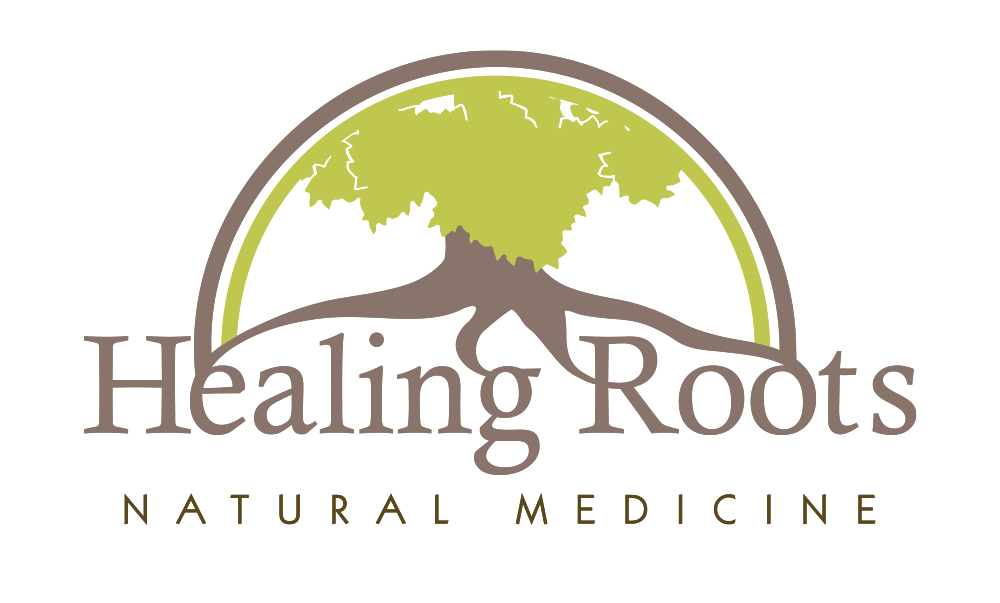
I was recently asked this question by a potential patient and her husband. She had just been diagnosed with Hashimoto’s and they were considering alternative treatment options. This sounds like a very simple straightforward question, and from the perspective of most doctors, the answer to whether or not thyroid medication is dangerous is a simple “No.”
While I mostly agree with that conclusion, I have a different perspective because I am considering this question from a different point-of-view, which is that of a naturopathic doctor. This means that I want to understand the root cause of a symptom or disease and find a solution for the individual patient that will help her thrive in both the short and long run.
More specific questions…
When I hear the question, “Is thyroid medication (or any other drug for that matter) dangerous?”, I believe that most people are asking one of the following questions:
- Is the drug directly toxic to my body?
- Are there serious short-term side effects from the drug?
- Are there long-term side effects from the drug?
While these answers are very important to know in order to make a decision about a drug or intervention, I would love to hear more people ask questions like this:
- Does this drug or intervention address the root cause(s) of the issue?
- If I choose this route, will the underlying issues be ignored or covered up?
- What are the repercussions of not treating the underlying cause, and how will this impact my health in the long run?
- Could there be additional benefits of choosing another approach to treatment?
I want to focus primarily on this latter set of questions, but I do think it is important to briefly address the first three and understand why it is correct to say that thyroid medication is not dangerous.
Common Thyroid Medication Side Effects
Here are some of the side effects commonly listed for synthetic thyroid hormones like Levothyroxine and Synthroid:
- Bone loss

- A rapid or irregular heartbeat
- Sleeplessness
- Hair loss
- Impaired fertility
- Headaches
- Increased sweating
- Hot flashes
- Changes in menstrual cycles
- Leg cramps
- Tremors
- Nervousness
- Weight loss
- Irritability
Danger – Thyroid Medication Dosing
The majority of these symptoms are not so much caused by the medication itself, but from incorrect dosing of the medication. Compare these to a list of hyperthyroid symptoms, and you will notice a lot of overlap. By and large, the medication itself is pretty safe as long as dosing is dialed in (although, from my perspective, thyroid medication can probably never be dosed perfectly because it involves trying to give a static amount of a hormone that naturally fluctuates through any given day).
There are people who respond better to various kinds of thyroid medication than others, for instance, a synthetic drug like Synthroid or a natural derivative like Nature Throid or Armour.
Danger – Reactions to Filler Ingredients in Thyroid Medication
 Other than the issue of over-medicating, the major “danger” with thyroid medications is that people can experience an allergic or hypersensitivity reaction to the fillers in the medication. Fillers in Synthroid include corn starch, confectioners sugar, lactose, magnesium stearate, povidone, talc, and color additives. Fillers in Cytomel contain calcium sulfate, gelatin, corn starch, stearic acid, sucrose, and talc. Gluten has also been used as a filler in some brands and compounded products. This issue is easily avoidable by confirming with your pharmacist that the medication is free of substances that you are sensitive to or allergic to.
Other than the issue of over-medicating, the major “danger” with thyroid medications is that people can experience an allergic or hypersensitivity reaction to the fillers in the medication. Fillers in Synthroid include corn starch, confectioners sugar, lactose, magnesium stearate, povidone, talc, and color additives. Fillers in Cytomel contain calcium sulfate, gelatin, corn starch, stearic acid, sucrose, and talc. Gluten has also been used as a filler in some brands and compounded products. This issue is easily avoidable by confirming with your pharmacist that the medication is free of substances that you are sensitive to or allergic to.
Making Decisions about Using Thyroid Medication and Other Interventions
Let’s tackle the second, less-often-asked-and-considered set of questions. These focus on:
- addressing the underlying, or root, cause of thyroid issues,
- understanding the potential benefits of treating the underlying cause, and
- being informed about the repercussions of not treating it.
As far as I know, there are no long-term studies that give us any clinical data comparing outcomes for people who take thyroid medication lifelong as their only source of treatment versus those who seek out additional care that addresses the underlying cause. I hope that someday soon this will be studied because I am confident you will see dramatic differences in overall parameters of health as well as the development of additional chronic diseases. This is for two reasons:
- The first is that my practice is filled with people who sought out my care because they did not feel better on thyroid medication or because, over time, they developed other symptoms of chronic disease, including additional autoimmune issues. This suggests that thyroid medication alone did not treat the underlying cause or help the individual become healthier on the whole, despite normal TSH levels.
- The second comes from looking at the underlying causes of thyroid disease and considering the other conditions related to these causes that may, and quite often do, develop (which is coming up in the next blog post).
I want to use a short example that I share with most patients to drive home the importance of treating the underlying cause rather than the symptom.
Eczema is a common skin ailment for young children. First run treatment options are often things like gentle soaps and topical emollients like petroleum jelly. If the condition is severe enough, topical corticosteroids are prescribed. While these do a great job of stamping out eczema, it has been found that these same children very often develop asthma later on in life. Asthma is NOT caused by steroids. But a great question to consider is, “Would asthma develop at all if the root cause of eczema had been addressed rather than using a suppressive therapy like topical steroids?”
This example may seem like it is singling out conventional medicine, but you can absolutely choose therapies that are from nature or considered natural but also only address the symptom rather than the root cause. A small example is the use of coconut oil topically for eczema. This doesn’t address an underlying cause, either. It is true that there is no chance of creating a cycle of severe addiction and lash back from the skin, as can happen in topical corticosteroid addiction, but coconut oil is also unlikely to be effective at all in controlling severe cases of eczema.
In both the example of eczema and our main topic of conversation here, thyroid conditions, we are really looking at a symptom that something is wrong rather than the problem. I have used the analogy of a smoke detector in the past, and it is appropriate to remember it here.
 Your thyroid is like your body’s smoke detector. When it is “beeping” with signs like a swollen thyroid or high TSH, or symptoms like hair loss, weight gain, cold hands, or fatigue (and more), it is a sign that something is wrong in your body. Would you ever pop the batteries out of your smoke detector without investigating what set it off? That would be dangerous, right? It might not burn the house down today or tomorrow, but something as small as smoldering ashes cause issues at some point in the long run.
Your thyroid is like your body’s smoke detector. When it is “beeping” with signs like a swollen thyroid or high TSH, or symptoms like hair loss, weight gain, cold hands, or fatigue (and more), it is a sign that something is wrong in your body. Would you ever pop the batteries out of your smoke detector without investigating what set it off? That would be dangerous, right? It might not burn the house down today or tomorrow, but something as small as smoldering ashes cause issues at some point in the long run.
What About You?
I wrote a 7-part blog series on the basics of thyroid health and the causes of thyroid disease. I would love to hear what you have to say about your experience with thyroid medication and interventions in the comment section. Please inspire each other!
As a registered Naturopathic Doctor in the state of Colorado, I specialize in addressing the underlying issues related to thyroid, autoimmunity, digestion, chronic congestion, and adult acne. If you’re interested in working with me locally or via Skype/phone consultations, schedule a free “Is this a good fit?” office or phone consult so that you can find out how I can help you.


Hi Dr. Enos-
I am a 40ish female who has suffered with Graves disease and Graves Eye disease for the last 2 .5 years. I recently made the decision to have my thyroid removed after trying desperately for the last 2 years to heal my condition naturally on my own. VERY tough decision! And honestly not the one I was hoping for. My thyroid had grown up my neck and into my ear canal and was prohibiting swallowing and airway. I am 5 mos post surgery and have been on NDT hormone therapy, but still feeling very hypothyroid. Do you treat post thyroidectomy patients? Many thanks.
That is a tough decision but sometimes a necessary one! Yes, I do work with post thyroidectomy patients- there are many possible explanations for continuing to feel hypothyroid.
Hi there, I came to Dr. Enos last year with some very serious thyroid problems. I too went the natural route and tried healing it myself. Nothing helped. I decided to work with Dr. Enos after interviewing a dozen other NDs. She was a great fit and after about 6 months, I was able to come off my thyroid meds (something my endocrinologist said would NEVER happen!) I feel great and have learned SO much from her. I would highly recommend visiting her for your thyroid issues.
So glad to hear that! Thanks for inspiring others with your success story.
Just to clarify: I assume that in your work with post-thyroidectomy patients, you mean ‘supplemental work’, since you do not prescribe T4 and T3, correct? (I had a complete thyroidectomy due to cancer.)
While I have not presented with any symptoms listed except possibly bone loss which I cannot necessarily attribute to the use of levothyroxine I have had skin reactions in the area of my thyroid which I am curious about. These “bumps” or hives began as I recall on a cruise where I was exposed to alot of sunlight, however, I had never had any type of reaction like this before and the rash appeared only in that one area.
I had injuries in 1986 that I took pain meds for, after losing my insurance with job i could never get knee surgery I needed until 30 yrs later so I suspect long term pain meds had a lot to do with my thyroid becoming substernal. I had many stresses due to losing my husband and son too. I had half my thyroid removed but it always tests normal even still. Two days after surgery I had 10+ pain and was diagnosed with Polymyalgia Rheumatica .its been 4 1/2 yrs on prednisone with no remission. Wish I’d found a dr early on that cares to find the root cause and Help me feel better. My sister took steroids for years and her feet break for no reason and I have osteo I had both hips replaced with complications being told I had rheumatoid arthritis then after the hips done they said I tested negative for it! I feel I could have strengthened them rather than drastic surgery. . No dr has cared enough to help me get better it’s just here take the steroids see you next month nothing changes except a new nodule on my last half of thyroid i want to save ! The Endo wants to follow upon 6 mo. I’m worried the module will grow and I will lose the last half thyroid just because it tests ok yet I have severe chronic fatigue audits of symptoms. Lost a lot of hair , I’m near Merced CALIF
I was told, that thyroid medication is very dangerous, but, when I have read this post, I changed my opinion. Thank you for this information.